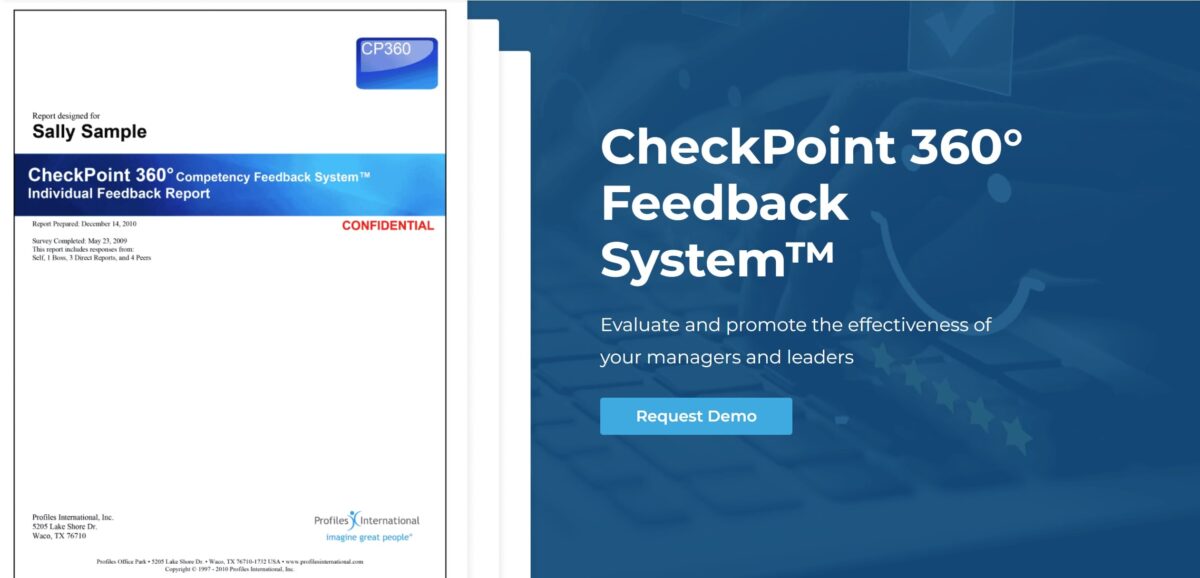“Leaders become great, not because of their power, but because of their ability to empower others.” – John Maxwell
In dynamic business landscapes, effective leadership stands as a pillar of organizational success.
The role of a leader goes beyond an organization’s management. It encompasses shaping a company’s vision, determining its trajectory, cultivating its culture, and taking care of its stakeholders—all of which are critical to driving growth, innovation, and long-term sustainability.
Cultivating good leadership qualities, however, may seem like an immense hurdle. To help you navigate its complexities, we’ll explore the topic in depth.
What is leadership?
In the business context, leadership refers to one’s ability to guide, inspire, and influence a group of individuals towards achieving an overarching goal.
As mentioned, it not only entails establishing a vision and making strategic decisions, but also motivating employees and cultivating an environment of collaboration and accountability.
Unlike management, which leans more on maintaining and optimizing processes, leadership is about forging new paths, managing change, and driving the organization forward.
What are the benefits of good leadership?
Effective leadership lets organizations enjoy the following advantages.
Enhanced employee engagement and productivity
Leaders play a critical role in keeping your workforce engaged, as Gallup estimates they account for at least 70% of discrepancies in employee engagement scores across all business levels.
Quality ones, meanwhile, care about their personnel, ensuring they have opportunities to maximize their talents and grow their careers.
Their efforts to keep employees motivated and involved can drive your organization’s performance as well, seeing how those with high levels of engagement are 21% more productive and 22% more profitable.
Improved decision-making
Today’s business environments are extremely challenging, as they constantly shift due to technological advancements, evolving skills, and changing performance barometers.
63% of leaders, in fact, find the business decisions made today to be more complicated than those 2 years ago. They’re feeling the fatigue brought about by such circumstances as well:
- Less than half (41%) of them are able to link decision-making to their organization’s value and strategy
- 28% of those tasked with executing strategy could only list 3 of their company’s 5 strategic priorities
Effective leaders, however, can overcome such challenges, and make informed, strategic decisions that benefit the entire organization in the end.
Stronger organizational culture
76% of Americans say their manager sets the culture, indicating how influential a leader’s example is on the work environment. Effective ones, in the meantime, promote values that foster a desirable workplace, such as:
- Accountability
- Respect
- Transparency
- Collaboration
- And so on
Adaptability to change
Organizational developments are unavoidable, especially in landscapes where industrial, economic, technological, and political climates can drastically alter a business’s trajectory.
For instance, technological advancements may render some skills and roles obsolete, and it’s imperative that your workforce be able to keep up, regardless of the stress it may bring.
Strong leaders must take initiative despite such circumstances, and guide employees through changes and uncertainties, as their livelihoods could be at stake. A leader’s active support, meanwhile, ensures your workforce’s resilience and your organization’s agility.
Better employee retention
Leaders that care for employees can secure their trust. At the same time, those who have faith in their superiors:
- Will less likely have any intention to quit, despite the effects of any organizational changes
- Are more likely to believe information from their leader and commit to the company’s decisions
Innovation
Staying competitive in ever-changing business landscapes requires inventive solutions and calculated risk-taking. Competent leaders, meanwhile, understand that cultivating a workplace that encourages such behaviors is critical to achieving innovative outcomes.
8 Qualities of a good leader
Many effective leadership qualities have been identified throughout the years. Here are some that we find essential.
1. Integrity
Leaders will set the standard for conduct across your business, making their trustworthiness and ethical behavior paramount.
In fact, all organizations, regardless of performance level, view integrity and ethics as a leader’s most important characteristics. More than 70% of high to low-performing companies even rank them as a top priority.
2. Accountability
“Accepting the consequences for failure is not a sign of weakness; it’s a measure of leadership. While no one likes to fail, the sooner you accept what happened, the sooner you can move forward.” – Harvard Business Review
Leaders that hold themselves and others accountable establish high standards and promote reliability throughout the organization. They accept responsibility, whether it be for praise or negative repercussions.
Effective leaders are also responsible for their teams, not resorting to finger pointing when mishaps occur. Instead of wasting time by shifting blame, the best find ways to turn problems into opportunities. They accept the fault and work towards a win-win resolution.
3. Emotional intelligence
Emotional intelligence (E.I.) is a key leadership skill that involves effectively recognizing, understanding, and managing one’s own emotions.
It enables fair decision-making, positive relationship building, and better workplace well-being, as it considers aspects that enhance leadership effectiveness, like how an individual:
- Copes with hardships
- Manages their moods, as well as others’
- Incites and resolves conflicts
- Handles criticism
This competency also allows leaders to place themselves in their employees’ shoes, which is foundational to nurturing an empathetic workplace.
Conflict resolution is another critical aspect of E.I., as effectively mediating disputes and maintaining workplace harmony is conducive to productivity and morale.
4. Effective communication and transparency
Your communication strategies and practices are crucial to leadership success, since being able to convey ideas clearly and listen actively let you:
- Recognize employee strengths and weaknesses
- Identify opportunities
- Understand problems
- Delegate work
- Spearhead projects
Open lines of communication create a more trusting and productive atmosphere as well, as team members can easily access vital information.
For instance, openly discussing the motivations behind company changes and how they’ll take place can address your employees’ uncertainties, allay their worries, and foster their trust.
5. Empowerment
Great leaders understand their team members’ strengths. They encourage employees to be active, then excel and grow. They’re not afraid to entrust major tasks and authority either.
Collaboration is heavily emphasized as well, as it’s conducive to innovation and productivity. This capacity to support and push employees, meanwhile, can inspire them to exceed expectations and aim for greater heights.
6. Decisiveness
Decisiveness refers to the ability to make firm and prompt decisions. In business settings, this can determine the direction and success of projects and strategies.
This quality is deeply appreciated in times of crisis as well, since acting quickly can mitigate risks and allow companies to navigate through challenges effectively.
Think of how a supply chain disruption can bring your production to a halt, forcing those in charge to swiftly choose alternative suppliers, minimize downtime, and meet schedules. During such circumstances, decisions must be:
- Well-informed: Having all the information can make or break any initiative. Before making a decision, effective leaders can gather all the details, analyze the situation, and determine the right course of action.
- Timely: Leaders also face tight deadlines or instances where quick decisions must be made, despite not having all the information. Decisiveness, however, ensures the organization still moves forward, even in the face of uncertainty.
- Confident: Leaders must trust their judgment and their team’s expertise. By making decisions that show your belief in your employees, you instill confidence in them as well.
7. Flexibility
Flexibility touches on how well one adapts to new conditions—an aspect critical to succeeding in fast-moving business environments.
It helps leaders guide employees through unstable periods, such as months or years of organizational restructuring, and face unforeseen challenges as they arise.
8. A thirst for knowledge
Becoming a leader doesn’t exempt you from constant growth. Having a natural hunger to learn, however, is an added plus, as it compels you to know more about your industry, develop your skills, and find ways to facilitate the organization’s improvement.
You don’t have the luxury to sit back, stop acquiring knowledge, and rely on your existing skills to face future problems and opportunities. So, be prepared to learn from others, whether they be your colleagues or subordinates.
How to develop good leadership qualities
Like other competencies, the characteristics necessary for effective leadership can be developed, and these best practices can help.
Embrace challenges
Nothing can develop one’s leadership qualities like experience, so don’t be afraid to take on new, formidable projects. Although they’re uncomfortable at first, exposure to situations that require superb leadership let you develop resilience, push boundaries, and grow.
Regularly overcoming challenges lets you build confidence as well, as you learn how to solve problems while under pressure.
Set clear goals
Establishing clear goals for you and your team helps maintain focus and direction. It’s a cornerstone of effective leadership as well. To effectively do this:
- Make sure they’re SMART: Unrealistic objectives can destroy morale. Make them Specific, Measurable, Achievable, Relevant, and Time-bound (SMART). For example, aim to help your team meet quarterly sales targets before looking to surpass them.
- Share your expectations: Convey your goals and ensure everyone understands their roles and contributions. By doing so, each person can hold themselves accountable.
- Monitor and adjust: Your goals will act as barometers, so regularly track your progress. If you find yourselves a bit off-target, make timely strategic adjustments.
Seek feedback
Effective communication and transparency is a two-way street. Since your peers and subordinates must listen to you, make sure to listen to them as well.
Their first-hand insights can help you recognize your strengths and weaknesses, so solicit their input. Quick improvements can be made from it.
Learn continuously
As mentioned, leaders aren’t exempted from consistent development, as it’s needed to stay ahead in fast-paced business landscapes.
So, whenever possible, make an effort to learn about industry trends, as well as upskill and reskill, whether it be through books, courses, workshops, or seminars. Don’t hesitate to learn from people throughout your organization as well.
Find mentors
Someone who has held or holds a position similar to you can help develop your leadership approach. Don’t hesitate to seek their assistance, as their insights have been shaped by first-hand experience.
A knowledgeable mentor that can provide guidance and support will make the learning process so much easier as well.
Undergo emotional intelligence training
By receiving training, you can make E.I. an integral part of your leadership. Emphasize aspects such as communication, self-awareness, empathy, and conflict resolution, as they’re all vital to maintaining a positive workplace.
You’ll end up spending resources, but it’s all worthwhile, as companies see a sevenfold ROI after 12 months of adopting E.I. training.
Self-reflection
Self-awareness and self-regulation are two core E.I. skills that can be honed through self-reflection. Take some time to look back on your actions or decisions, as well as their consequences.
By doing so, you learn to recognize your emotional strengths and weaknesses, then understand how your reactions to specific situations can be improved. Don’t forget to celebrate your successes as well, as it’s essential to maintaining your morale.
Practice active listening
Many zone out when the person they’re listening to goes on for a while. They end up forming quick judgments before hearing everything or before the speaker is done.
Active listening helps, but it’s an important E.I. skill that’s hard to acquire. Many online courses go into detail, but what’s most important is that you listen to understand rather than to respond. So, pay attention, don’t interrupt, and thoughtfully respond afterwards.
Wrapping up—The qualities necessary for great leadership can be developed
By embodying the qualities of a good leader and continuously striving for improvement, you can take your company to new heights.
Effective leadership, however, isn’t an innate trait, but a collection of skills and characteristics that can be honed through time, experience, and training. To ensure your organization’s long-term success, invest in opportunities that allow you and your workforce to develop them.

At the same time, if you’re looking to gauge the effectiveness of your company’s leadership, Profiles Asia Pacific’s CheckPoint 360° Feedback System™ measures competencies that allow individuals to thrive in a leadership role. To utilize it, simply get in touch!
Published: September 25, 2014
Updated: June 7, 2024




